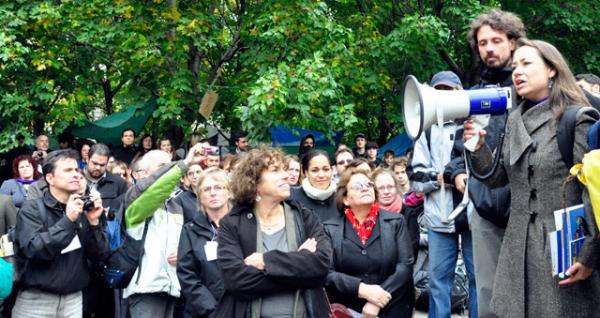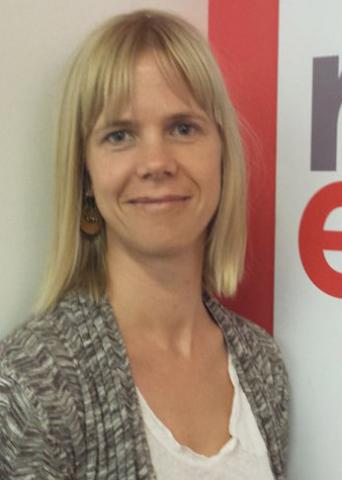
By Béatrice Alain
All over the world communities have come up with innovative ways to manage local resources and meet collective needs. In Quebec, when these initiatives include selling goods or services we call them “social economy initiatives,” because the primary mission of these enterprises is to answer the needs and aspirations of the community or of its members rather than to maximize profit.
Collectively and democratically managed, these coops and associations are by definition accountable to the community in the short and long run.
As a matter of fact, these kinds of initiatives take place all over the world, though they may not be labeled the same way as they are in Quebec: citizen organizations that manage the commons, organizations striving for Sumak Kawsay (a quechua concept that aims to ensure human dignity in equilibrium with nature), and the solidarity economy or community wealth building are all terms used in different places to identify efforts of communities to come together in order to provide goods and services and use local resources in ways that meet their needs.
These needs differ from place to place. Certainly they are concerned with accessing and using natural resources: in Nepal, one third of the population belongs to forest user groups, which manage these according to the need to develop, but also to sustain natural spaces. In Quebec, social economy enterprises provide maintenance of green corridors and facilitate the cohabitation of tourists, residents, farmers, forest workers and residents in these areas.
Social economy enterprises also ensure the quality of life of residents in the community by providing local services such as daycares , elderly residences or groceries that are concerned with maximising accessibility and quality, versus profit, all the while remaining viable enterprises. They are at the heart of initiatives to maintain and celebrate local cultural heritage and to bring residents together such as festivals, fairs and other activities organized in public or common spaces.
Recognizing that these initiatives provide effective and sustainable ways to meet several of their objectives, i.e. efficiently managing local resources [1], reducing inequality and improving social cohesion, governments on every continent are collaborating with social economy enterprises to enable their creation and development. In France, many local governments contract exclusively with enterprises with missions to provide jobs for handicapped people or to reintegrate people into the workforce when comes time to renovate public buildings or clean public spaces.
The City of Boston’s pioneering collaboration with the Dudley Street Neighborhood Initiative ensured the revitalization of this neighborhood and accessible housing for its residents, helping to reverse the flow of young families from the urban center. In many cities in Africa and Latin America, local governments have recognized the work of garbage pickers and worked with them to install more efficient and sustainable waste management processes, guaranteeing by-the-by decent working conditions for some of the most marginal groups in the city.
Precisely one of the strengths of the social economy is that the organisations that emerge are tailored to the needs and aspirations of their community (it can also be a weakness if these differences prevent broader coalition building and/or government recognition).This is actually one of the strengths of Quebec: to have regrouped these local initiatives under the umbrella of “social economy” and as such to have have achieved systemic recognition and support (the framework legislation + many other policies and programs) for these diverse initiatives.
The City of Seoul, South Korea has been at the forefront of enabling the action of local social economy enterprises, and organized an important international forum to facilitate dialogue between them in 2013, which led to the creation of a permanent association, the Global Social Economy Forum (GSEF) in 2014. The City of Montreal and the Chantier de l’économie sociale will host the third edition of this forum in September 2016.
The central theme of GSEF2016 is the collaboration between local governments and the social economy for the development of cities and the objective is to highlight successful practices taking place all over the world in order to inspire and equip actors, be they within local governments or civil society, to ensure that individuals and communities are able to claim access and control over what they need to live full and prosperous lives.
The Chantier de l’économie sociale is a Quebec-wide network of social economy enterprises, sectoral and regional networks of social economy enterprises, as well as support structures and social movements that contribute to their growth. Its mission is to promote the social economy as an integral part of Québec's plural economy, and in so doing, contribute to the democratization of the economy and the emergence of a development model based on the values of solidarity, equity, and transparency.
The Global Social Economy Forum - GSEF2016 will be held in Montreal from the 7th to the 9th September 2016. It is co-organized by the City of Montreal and the Chantier de l’économie sociale and its central theme is the collaboration between local governments and the social and solidarity economy for the development of cities. The programming of GSEF2016 will be largely based on a call for proposals which opens October 27th until January 3rd. All submissions are to be sent via the forum’s website (www.gsef2016.org). Around 2,000 participants from local governments, SSE organizations, the private sector and the civil society from around the world are expected to attend.
Regarding the question of how people can gain control over what they need to live full and prosperous lives, particularly through local government: by engaging (creating or participating in) in initiatives that are run by and for the community (and being inspired by best practices elsewhere that do so); by supporting initiatives that do so as a way to ensure that local economic, social, cultural and environmental resources are being used in ways that reflect the community's needs (vs. distant shareholder needs/profit maximisation considerations, but also vs. a central government's needs to ensure standard, homogeneous coverage that cannot reflect local particularities of its public programs) and by educating government (first and foremost local, but also regional & national) about the specific needs of these initiatives, through dialogue and through coalition building to reinforce the movement's strength and visibility.
[1] Local resources refers to those that a community that can readily access and use, and that are close enough that the community will be affected by the way these resources are managed. The examples that are country or province wide are actually of networks of local initiatives. For example, there is a network of parent-run daycares. This interfaces with the Quebec government (which has adopted public policy to recognize and support it) but each daycare is run by and accountable to a board of parents whose children attend the daycare and who are elected by a general assembly of parents and staff each year. Similary, the network of forest users in Nepal regroups many local user groups, each working in function of and in answer to their local reality and needs.
Though there have been many cases of governments recognizing and supporting garbage pickers, in each case where governments have done so, they have done so through programs that reflect the local reality of these actors as well as the needs, resources and legal tools of the municipality.
 Béatrice Alain, responsible for International Relations at the Chantier de l’économie sociale and General Director of the Global Social Economy Forum 2016.
Béatrice Alain, responsible for International Relations at the Chantier de l’économie sociale and General Director of the Global Social Economy Forum 2016.
Follow us: Twitter YouTube Facebook